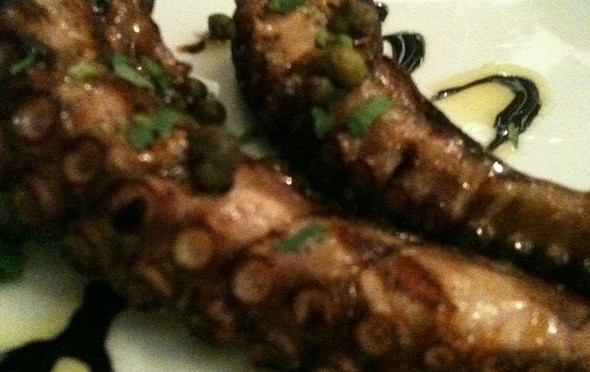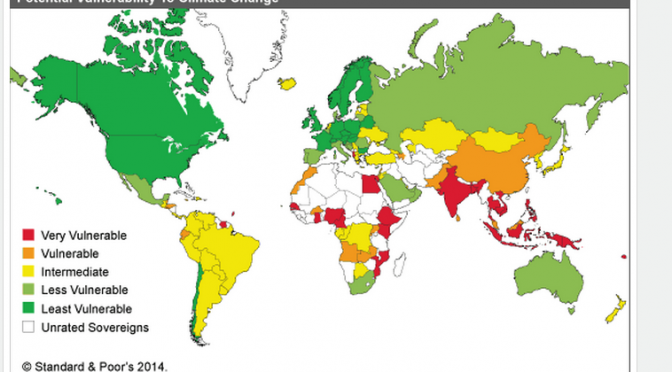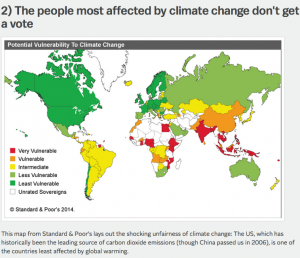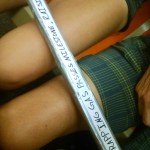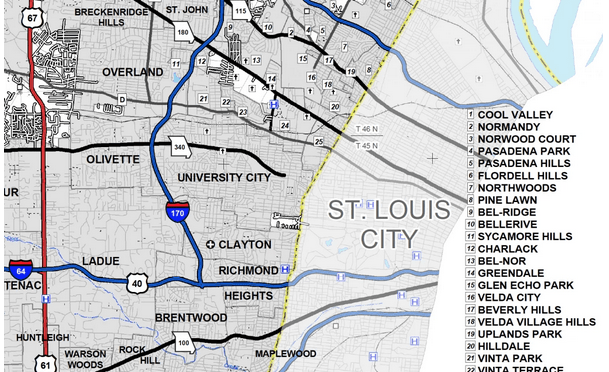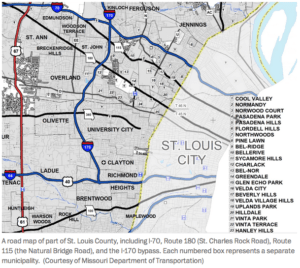Silvia Killingsworth, who is the managing editor of the New Yorker, does a great job describing the problem. Octopuses have some kind of intelligence, they decorate their lairs for instance and make octopus gardens, as Ringo pointed out.
Should that disqualify them from being eaten by humans? It is, as she probes and tells, a typically more difficult problem to solve than saying yes or no, but I’m struck by some obvious points she makes, and some she doesn’t.
The octopuses we eat in New York are not local. They are caught elsewhere and frozen. If we value the reduction of food miles, we shouldn’t be eating octopus in New York City, usually.
The intelligence of the animal probably doesn’t matter that much. Pigs may be smarter than octopuses, or are at least close (though their housekeeping talents are definitely less rigorous), and we eat them. A lot of them. Though maybe that’s because they’re farmed, and we let them lie in mud and shit (enjoying life) for their entire lives, just like they like it.
Octopus isn’t kosher either.
She also does a nice job of describing the horrors and contradictions of the live octopus eating scene in the deliriously magnificent Korean film, Old Boy. But she merely says that the Buddhist actor, Choi Min-sik, said that he said a prayer for each of the animals before biting their heads off. She doesn’t describe how much excitement came with his transgression, but this clip does:
I don’t eat much meat anymore, and I struggle with the why. In part it is practical. My daughter doesn’t eat meat, she identifies with the animals, and I eat dinner with her. She doesn’t object directly if meat is a dish, but preparing two different dinners is extra work. Not eating meat isn’t a problem at home.
But going out and not eating meat is to miss the art of many chef’s work. I once went vegetarian at Union Square Cafe and was blown away by how good it was, but I also sorely missed that piece of barely-cooked tuna they served that is one of the great dishes I’ve ever eaten. Brilliant vegetables I can and do make at home. Well prepared flesh is a treat.
But I’m thinking harder about these special occasions. We source locally, we pay a lot, we serve small portions, but in the end are we better off? I feel like I’m still making value decisions about the eatability of different forms of flesh (lamb versus octopus? shrimp versus cow?) and I’m very unsure that that is the right tack.
The reason I decided to write about this NYer piece was because I see in it an echo of ethics and morality ringing through history. There is a straight (and long) line from slave holding to deciding not to eat octopus. The trick is to track that line into the future. Which behaviors of ours are actually natural and which are rationalized abominations? The sands shift with our history, but doesn’t our understanding that fact compel us to look closely and not accept today’s easiest answers?
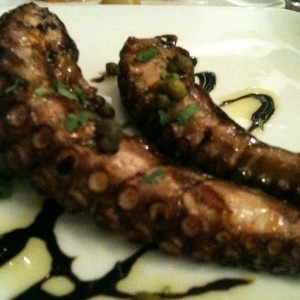 Ethics, of course, are a luxury afforded when we can afford civilization. But that’s good enough for me. When the grid goes down and we start running out of food, the situation will be different, and will offer different answers. Today I think it’s better to eat way less animal flesh. Better for our health, better for the planet, and maybe better for the animals. But if I should land in a real Greek restaurant with a real wood grill, the earthy burn curling through the air like a temptress, will I resist the tenderly and lengthily massaged and prepared grilled octopus?
Ethics, of course, are a luxury afforded when we can afford civilization. But that’s good enough for me. When the grid goes down and we start running out of food, the situation will be different, and will offer different answers. Today I think it’s better to eat way less animal flesh. Better for our health, better for the planet, and maybe better for the animals. But if I should land in a real Greek restaurant with a real wood grill, the earthy burn curling through the air like a temptress, will I resist the tenderly and lengthily massaged and prepared grilled octopus?
Even in New York it would be hard to say no.

